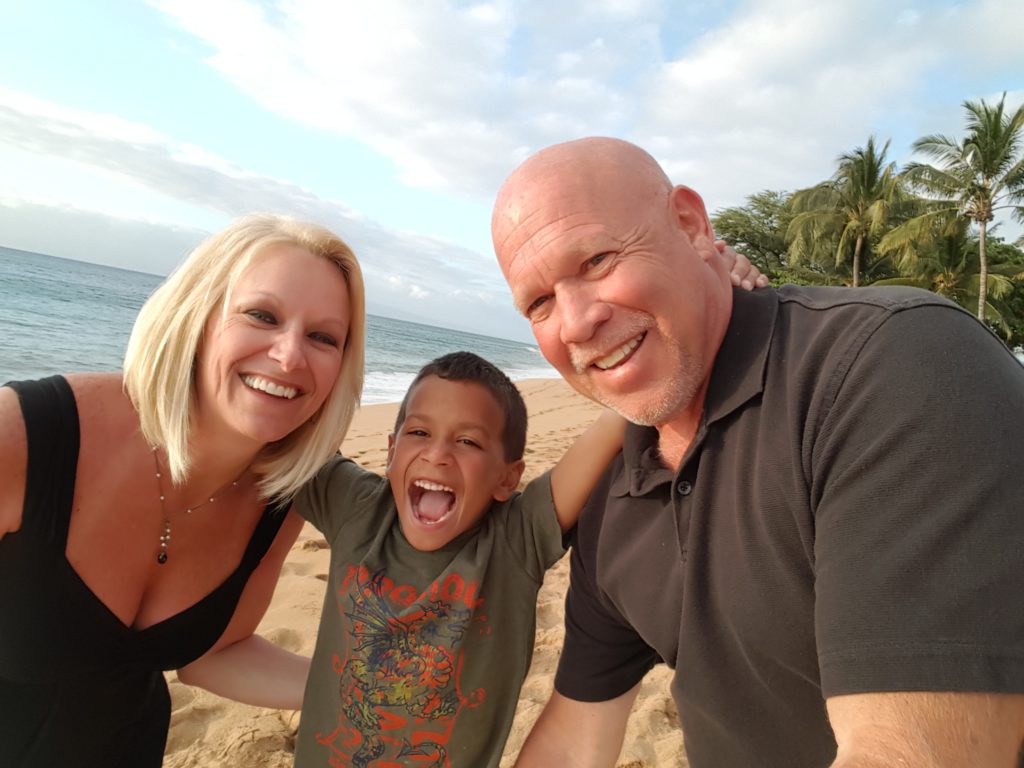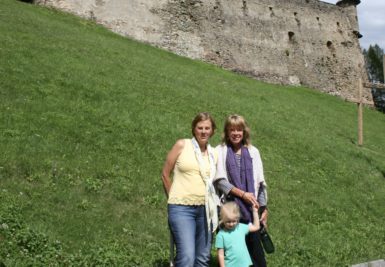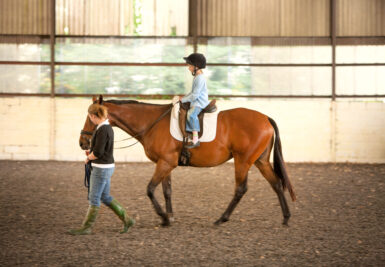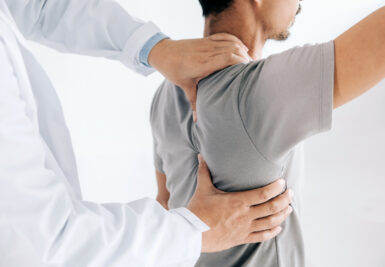This post is part of The Ultimate Guide to Sports Medicine
Although Rick Jackson is 65-years-old, he’s nowhere near ready to slow down. But, there was a time when Rick thought he might have to. A couple years ago, Rick was experiencing increasing pain in both of his shoulders that didn’t allow him to do any sort of overhead motion with his arms.
Rick tried to ignore the ache, but that also meant he wasn’t able to do all the things he enjoyed. Eventually, the pain was too much to bear and Rick took the advice of a good friend that referred him to OrthoIndy sports medicine physician, Dr. Jonathan Shook.
Rotator cuff surgery
Dr. Shook determined Rick had torn rotator cuffs in both of his shoulders. Probably something Rick had been living with for quite some time. Rick has always been active playing baseball and riding dirt bikes, both sports that require a lot of shoulder strength. Overtime, the injury worsened and the pain heightened.
A rotator cuff tear is a common cause of pain and disability among adults. A torn rotator cuff weakens the shoulder and makes daily activities painful and difficult to do.
For some people with rotator cuff injuries, nonsurgical treatment relieves pain and improves function in the shoulder; however, full shoulder strength does not usually improve without surgery. Rick would need surgery in both shoulders if he wanted to continuing living his active lifestyle.
“Rick came to me having dealt with his shoulder problems for a long time. He just wasn’t able to do to the things he loved anymore without dealing with constant pain,” said Dr. Shook. “He knew something needed to be done and he had a very specific timeline in which to accomplish this. We laid out our plan together and I told him that if he stuck to the game plan that we would get him ‘back in the game’.”
In November 2016, Rick had his right shoulder surgery. Less than two months later he underwent surgery for his left shoulder.
to repair a torn rotator cuff, surgery involves re-attaching the tendon to the head of the humerus; the “ball” at the top of the arm. Large, painful incisions are no longer required to fix even some of the most severe tears. Most rotator cuff repairs are now fixed arthroscopically (using a camera and instruments through small incisions).
“OrthoIndy was very organized and professional and made things go very smoothly,” said Rick. “Dr. Shook took the time to talk to me and didn’t make me feel rushed. He was interested in what I had to say and he and his physician’s assistant were both a pleasure to work with.”
Rotator cuff surgery recovery
After surgery, patients are placed into a sling, typically with a small cushion/pillow attached to it that holds the arm away from the body. This helps reduce tension on the repair. Physical therapy is typically started within the first couple of weeks.
“I tell my patients that they need to be committed to the rehabilitation process or we won’t have a successful outcome,” said Dr. Shook. “We need to work together as a team with the patient’s physical therapist in order to have the best possible result. Most people who have rotator cuff surgery will do very well and will be able to return to their pre-injury level of activity.”
While many patients can resume basic functional activities within two to three months, most patients will take four to six months to resume full activities. It is not uncommon for patients to continue to see ongoing improvements in their function and strength over the course of the first year after surgery.
Now Rick is able to not only spend time with his grandkids but be active alongside them. “I’m back to normal,” said Rick. “I plan to teach my grand kids to play basketball, baseball, tennis, wakeboarding, surfing and ride dirt bikes.”
To schedule an appointment with Dr. Shook please call 317.569.2514 or learn more about sports medicine treatment at OrthoIndy.
Schedule an appointment
Your well-being is important to us. Click the button below or call us to schedule an appointment with one of our orthopedic specialists. If your injury or condition is recent, you can walk right into one of our OrthoIndy Urgent Care locations for immediate care. For rehabilitation and physical therapy, no referral is needed to see one of our physical therapists.





